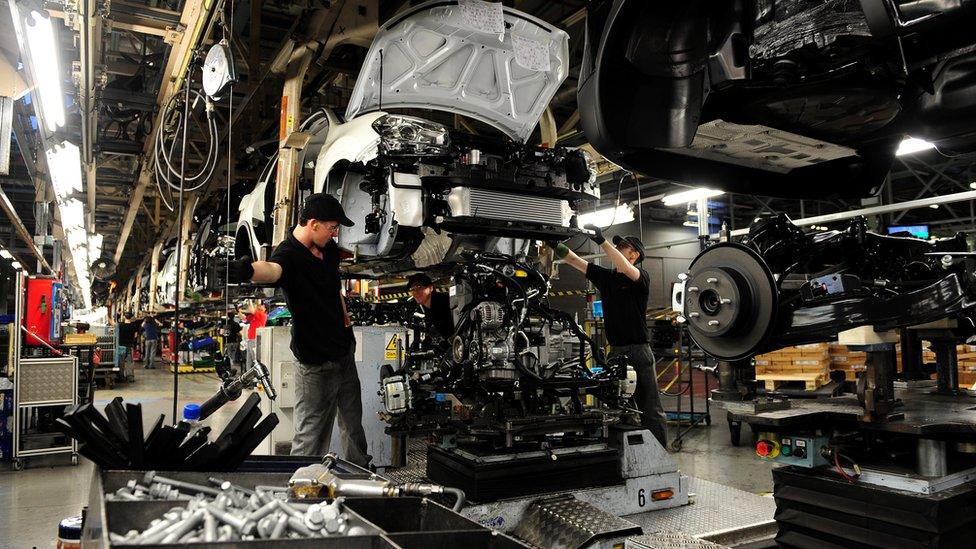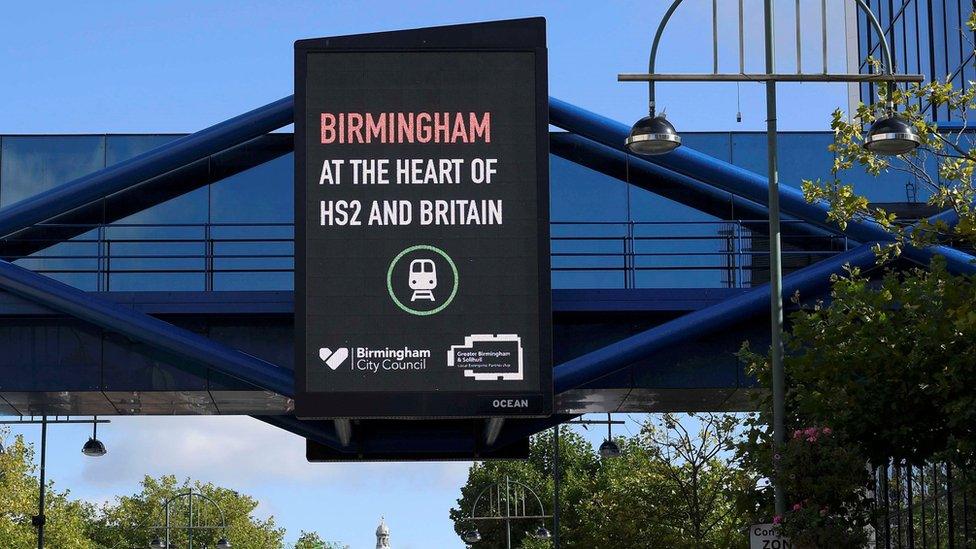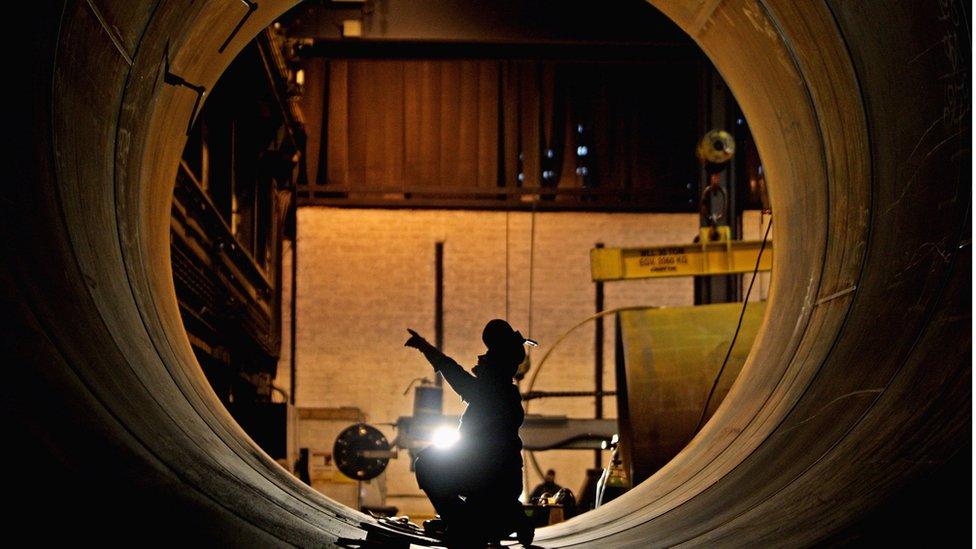UK productivity back at pre-crisis levels
- Published

It's a puzzle as to why UK productivity has not grown in recent years
The UK has only just pushed productivity per hour worked above its pre-crisis levels, according to Thursday's figures from the Office for National Statistics.
There has been a steady economic recovery since the financial crisis, but it has been driven by longer hours and more people working.
So while the economy has grown, living standards and wages have not.
The chancellor said this week incomes would soar if productivity were higher.
Philip Hammond told the Conservative conference it would add thousands to household income and was vital to the UK's future: "If we raised our productivity by just 1% every year, within a decade we would add £250bn to the size of our economy; £9,000 for every household in Britain."
That, for what it's worth, would easily wipe out the hit to household incomes the Treasury forecast from leaving the EU.
Value
So what is productivity?
Productivity is, crudely put, how good the economy is at turning hours at work and raw materials into something valuable. If productivity rises then wages and living standards rise too.
It is not about how hard we work, but how much value we get for each hour of graft.

It takes UK workers five days to make what other developed countries can in four
Mark Carney, governor of the Bank of England, has described it as, "the ultimate determinant of people's incomes, and with it the capacity of our economy to support health, wealth and happiness."
So, pretty important. Yet in the UK it is not in great shape - almost a fifth lower than in the rest of the G7 advanced economies and almost a third lower than in France the US and Germany.
You can think of it like this.
Most of us go to work Monday to Friday and over a week we get a certain amount of work done.

But in Germany, the United States and even France, their workers could go home on a Thursday and easily match our efforts, assuming they worked the same hours.
In those three countries productivity per hour is about 30% higher than ours. They could have a three-day weekend, every week, and keep up with our five-day slog.
Why is that? No one knows for sure.
The UK was overtaken by France and Germany in the 1970s. The US has been ahead since the Second World War.
Accuracy
In recent years the massive disruption the financial crisis caused led to slumps in productivity in many of the world's biggest economies - including the UK.
But unlike after previous recessions the UK's productivity growth didn't bounce back to its long-term average of 2% annual growth and it fell further behind.
The UK economy has grown since the crisis but mainly because we are all working longer hours. We are only just treading water on productivity growth.
That is vitally important because 2% productivity growth is the reason each generation has enjoyed living standards twice as good as their parents for the last 100 years.

German workers are more productive than UK ones
So how do we fix it?
That depends what you think the problem is - and there are a lot of theories.
It could be we are just not measuring our economy properly. It is very hard to accurately measure the whole economy and data is often revised. If it is revised up then suddenly our productivity looks better.
Tilt
We might be missing the benefits of technology, with free services like Google Maps and Facebook and streaming music improving people's lives in ways that aren't properly measured.
That is unlikely to be the whole story though.
Low investment is blamed by many, with the UK investing less in infrastructure than the French or Spanish under the last government.
Literacy and numeracy are also worse in the UK than in most of Europe's biggest economies. That said, the current generation are the best educated in history, external.
The UK is also tilted towards London and the South East, the only regions that pull above the rest of the country in terms of productivity, external.
Revolution
Adding to that unbalance our economy has shifted towards low-paid jobs in low productivity sectors like the accommodation and the food sector. So the employment rate is close to record highs but cheap labour means companies can afford to put off investment in machinery and other, more efficient ways of working.
This leads us to look at the bigger picture - investment fuels innovation.

Flushing water or technology - which has changed the world more?
Over the last 150 years we have seen incredible advances. We have gone from horse-drawn carts to Boeing 747s, kerosene lamps to electricity in most homes and outhouses and pails of water to flushing toilets and clean running water.
Add to that revolutionary inventions like antibiotics, the internal combustion engine and the internet among countless others and we have witnessed one of the greatest periods of technological innovation in history.
All of those advances boosted productivity.
Not appy
The American economist Robert Gordon has argued that we are running out of powerful ideas. As he put it, what really changed lives more - the flushing toilet and sanitation or the iPhone?
So we face huge challenges maintaining the last century's growth in productivity, living standards and wages.
We need to solve our productivity puzzle.
Sadly, there isn't an app for that.
- Published3 October 2016

- Published4 October 2016

- Published30 September 2016

- Published22 September 2016
